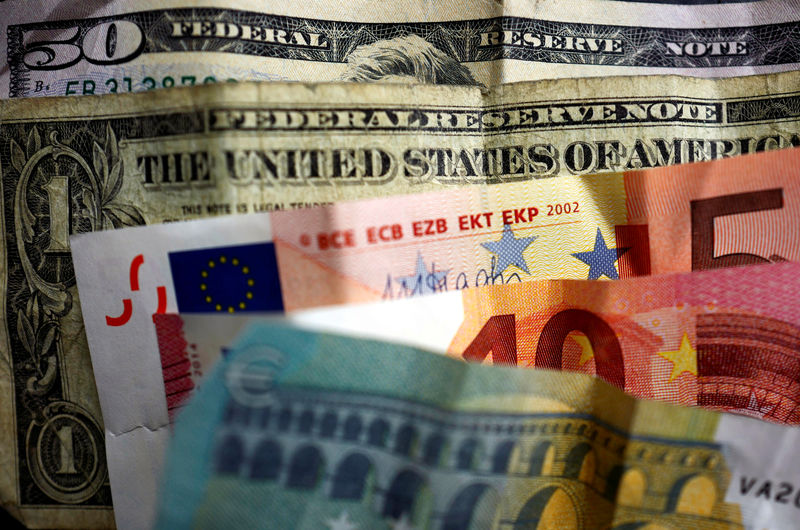Investing.com – The US dollar rose marginally on Thursday, consolidating after recent volatility, while the euro continued to show weakness as the situation in Eastern Europe becomes more tense.
At 05:10 ET (10:10 GMT), the Dollar Index, which tracks the greenback against a basket of six other currencies, was trading 0.1% higher at 106.690, adding to the previous session’s gains and into the remained close to last week’s one-year high.
Dollar Consolidates Near Highs
The dollar may have fallen slightly on Thursday but remains in demand as relations between Russia and the West remain extremely fraught as Ukraine used both US and British missiles to strike deep into Russian territory.
The US currency has also been buoyed by Donald Trump’s victory in the presidential election, with traders digesting policies aimed at big budget spending, higher tariffs and tighter immigration, measures that could boost inflation and possibly ease the Federal Reserve slow down.
“The DXY is holding gains and it’s not hard to see why. US yields are being raised slightly as the market turns away from pricing a Fed rate cut in December,” ING analysts said in a note. “Only 8 bps of easing is now priced.”
There will be data later in the session for investors to digest, while several Federal Reserve officials will also speak in the coming days.
The euro continues to fall
In Europe, it traded 0.3% lower at 1.0516, after falling 0.5% on Wednesday, back to last week’s low of $1.0496, its weakest level against the dollar since October 2023 .
“EUR/USD appears to have been battered by events in Ukraine this week,” ING noted. “The war is going through a period of escalation as both sides try to gain ground ahead of possible ceasefire talks early next year. The Biden administration’s move to provide more support before the end of the year warns of a more aggressive Russian response – a development that will weigh on European currencies.”
Also weighing is the weak economic environment in Europe, coupled with the potential for a trade war with the new Trump-led US administration.
“The balance between risks to growth and inflation is shifting downward, and possible US tariffs are not expected to significantly change the inflation outlook in Europe,” ECB policymaker Francois Villeroy de Galhau said in a speech in Tokyo earlier Thursday.
fell 0.2% to 1.2630 after data released earlier Thursday showed Britain borrowed more than expected in October.
In October alone the size was £17.4 billion, according to the Office for National Statistics, the second largest total of loans in October since records began in 1993.
Yen wins on Ueda’s comments
fell 0.7% to 154.38, with the Japanese yen boosted after Kazuo Ueda, governor of the Bank of Japan, said the central bank will “seriously” take exchange rate movements into account when making its economic and price forecasts .
He noted that there is still a month to go until the BOJ’s next policy meeting in December, adding that there will be more information to process by then.
fell 0.1% to 7.2415, but the yuan remained near a four-month low, pressured by potential trade headwinds from a Trump presidency.


